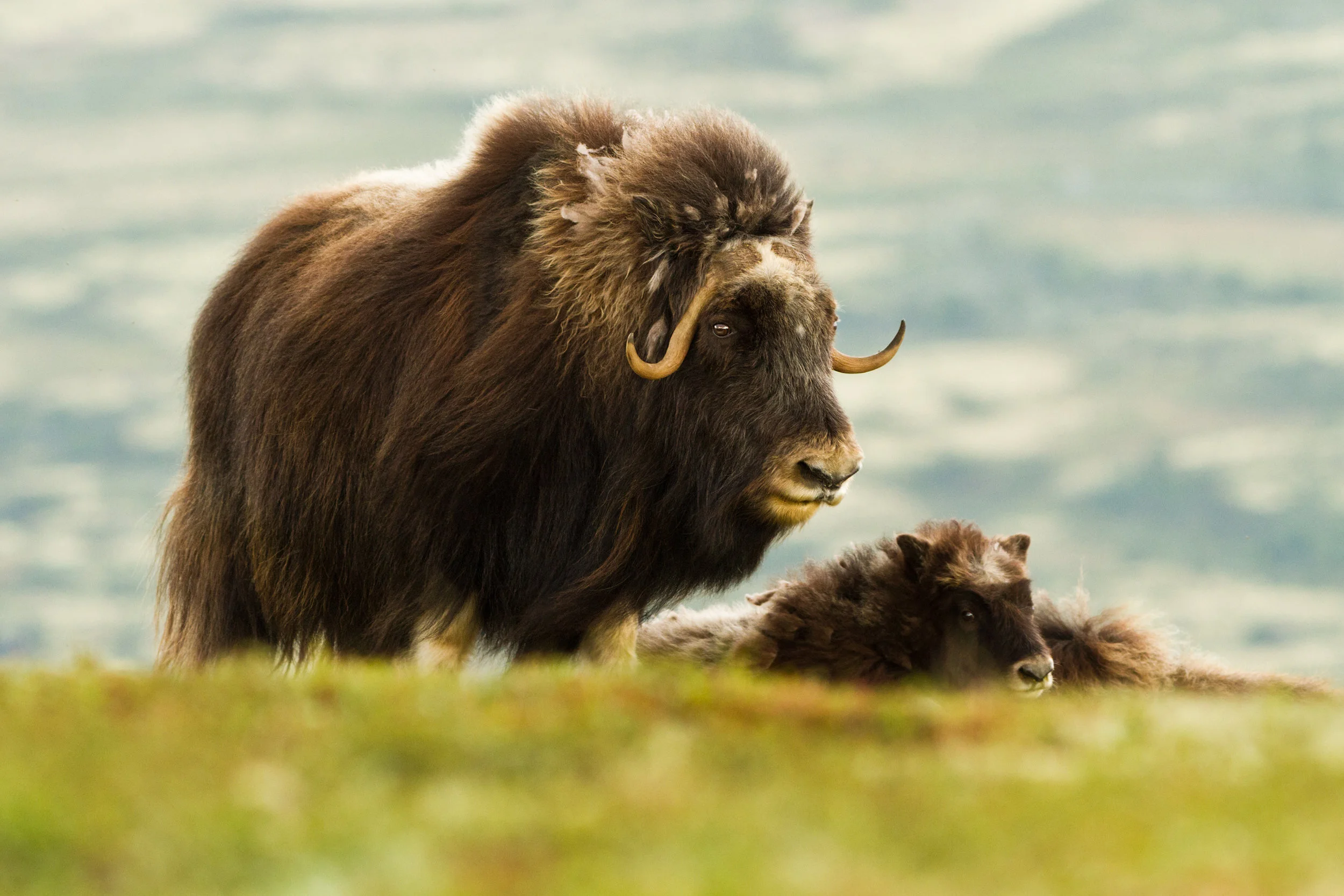A Myth of Strength or (Classic Abandonment Issues)
First, consider the Muskox.
Though similar in appearance to the great bison of the North American Plains, the Muskox (which prefers the High Arctics) have more in common with sheep and goats than with their namesake beasts. Even their large heads and thick hair are instruments of illusion, making them appear much larger than they are.
They are known for the strong odor the males emit during mating season and their long curved horns which (to me) resemble the powdered white wigs of court dress. When looking at a photograph of these gentle grazers, I like to imagine those wall-sized oil paintings of lawyers, judges, and politicians arguing the fate of the world.
When threatened, the Muskox come together in a circle around their calves. Facing outward, they are able to defend an attack from any direction. This tactic served them well against the familiar predators of wolves and bears for thousands of years but proved useless when a new predator hungered: Man.
When faced with this new threat, the Muskox continued to use the same tactic that had never failed them and by doing so became accomplices in their own destruction — it made them easier to kill.
I learned of the Muskox while visiting the Royal Ontario Museum. It was fall and I found in their folly, my own. How I was riddled with any number of concepts that, although useful in the past, had become the very things assuring my oblivion. During the writing of this book, I uncovered another one: Strength.
For most of my life, if I couldn’t do something on my own it meant I was weak. To ask for help or admit that I didn’t know something, was the equivalent of rolling over and pointing out to the world where I was most vulnerable — something, that when it comes to survival, is an original sin. Or so I thought.
Chapter four of My Father’s Hand Is a Mountain Range is a retelling of the myth of Theseus that reimagines the ancient hero as a poster child for classic abandonment issues.
By taking a closer look at Theseus’s six labors and how each of his opponents also suffered from their own deeply ingrained misconceptions, the ten poems that make up this section explore the unresolved issues that can unknowingly steer our lives — whether it be self-sabotage, allowing others to take advantage of you, or the feeling that you must accomplish something great in order to be worthy of love.
It is a chapter where I learned that true strength isn't about ignoring the pain. That sometimes, it is about having the courage to follow the arrow of pain back to its vibrating bow; back to its empty sheath; back to its Hickory Heartwood.


